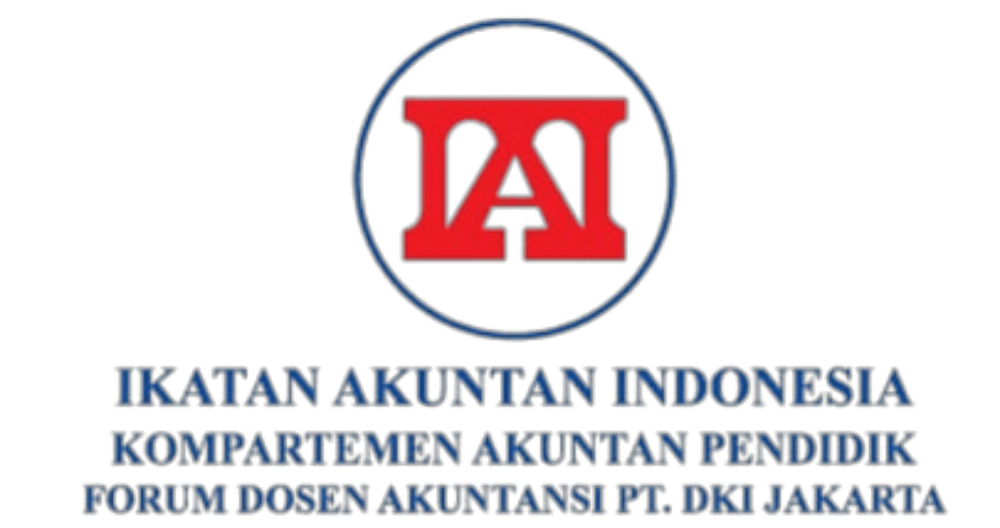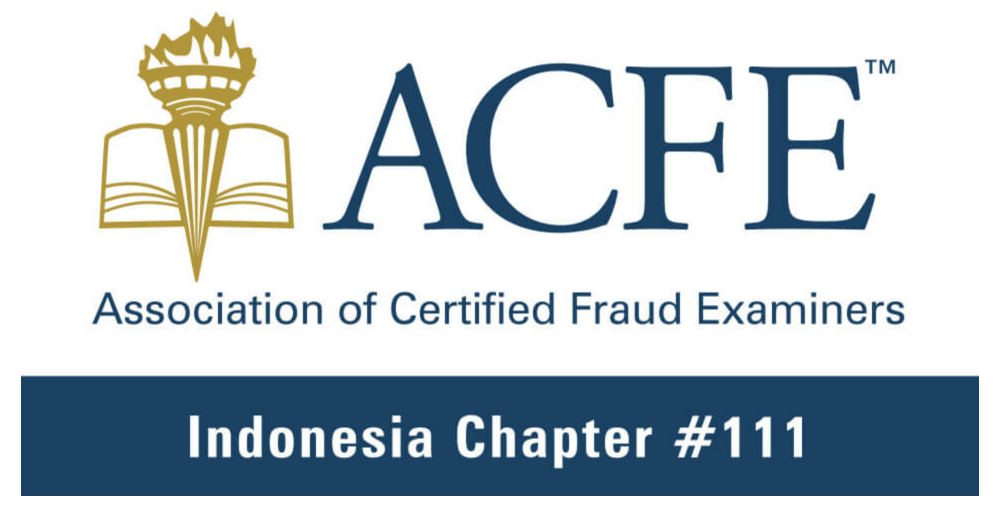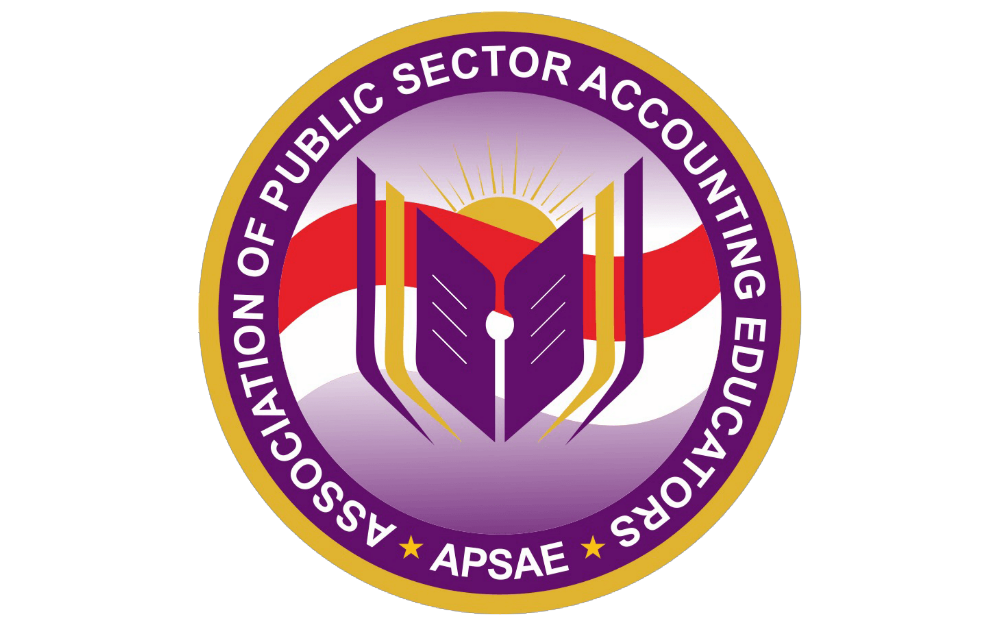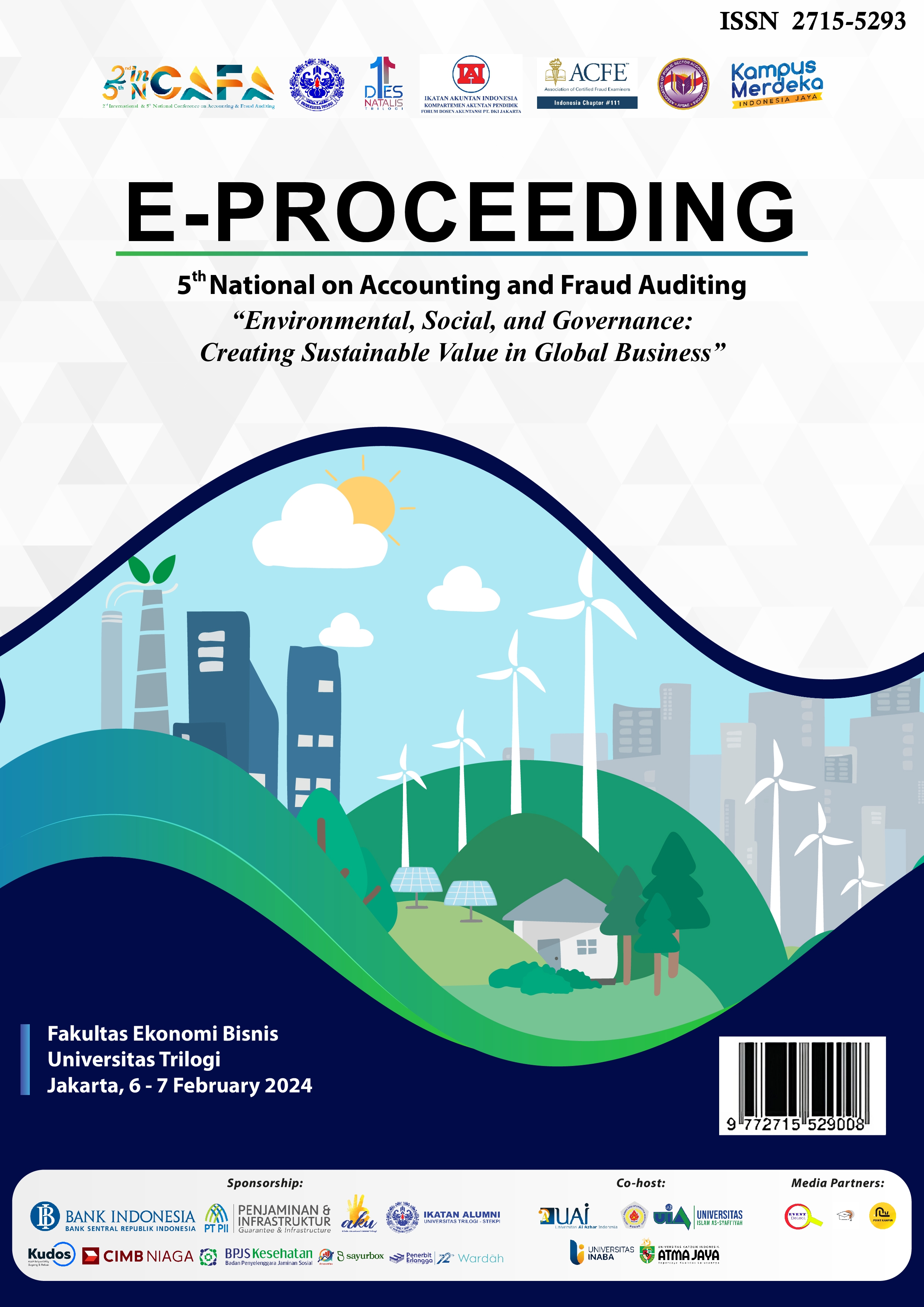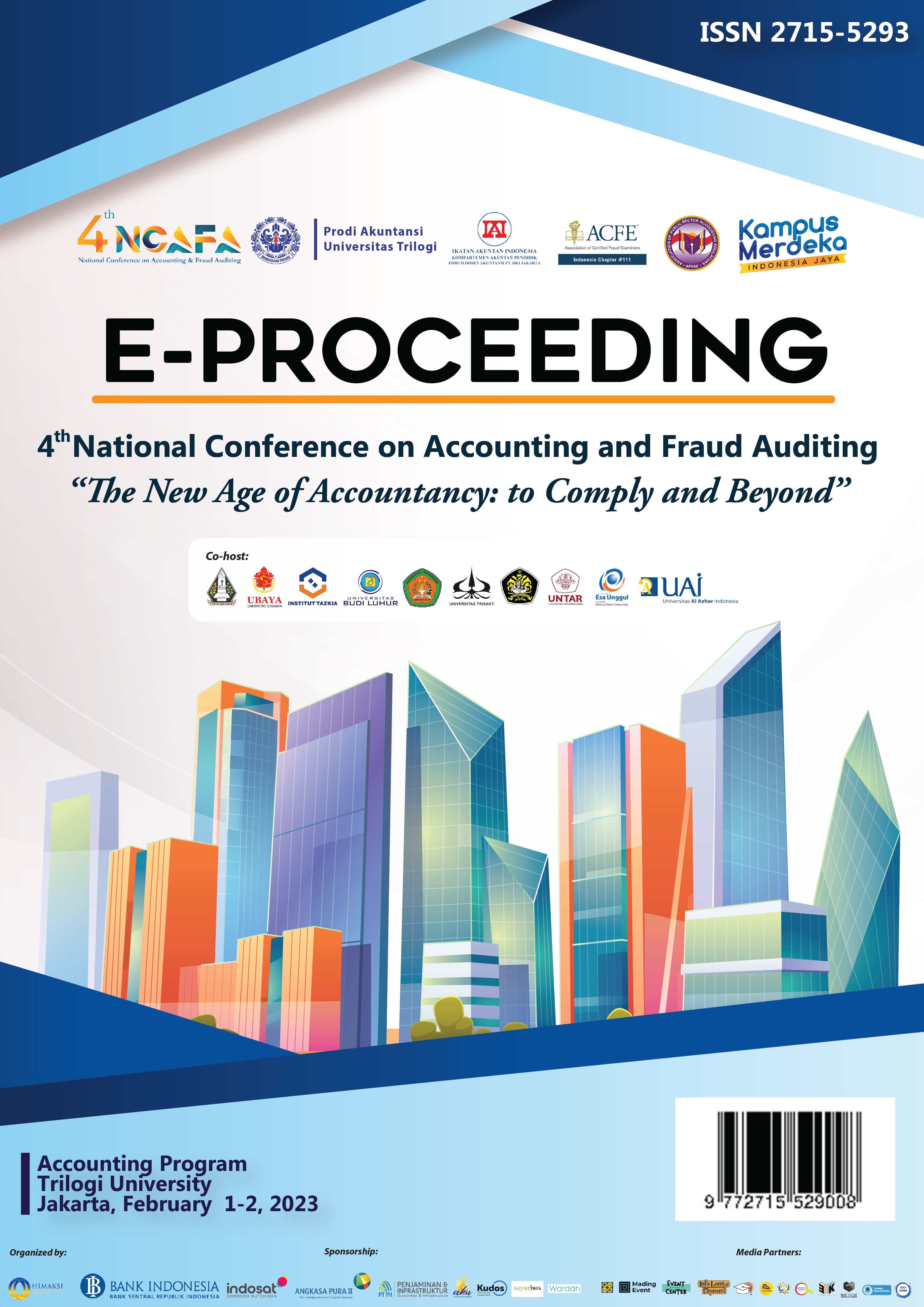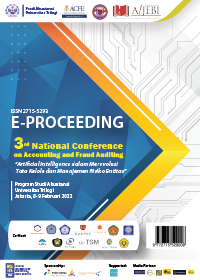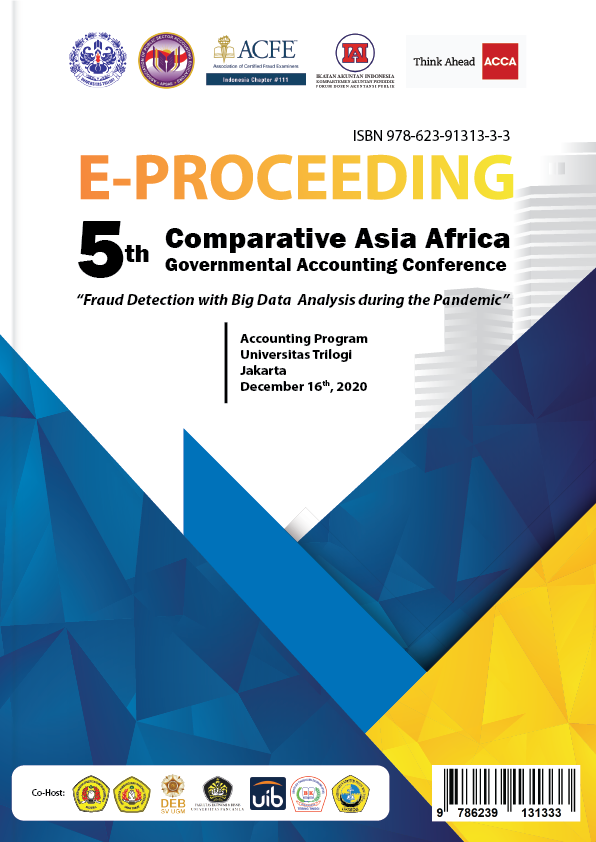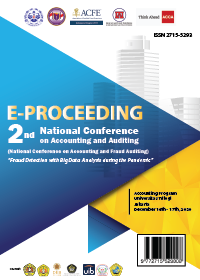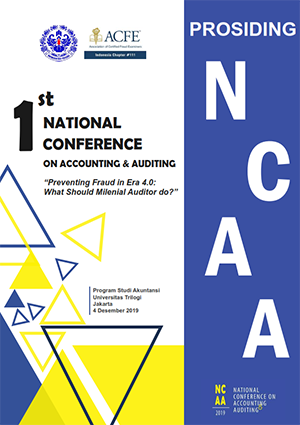BALANCED SCORECARD SEBAGAI DASAR PENYUSUNAN ANGGARAN BERBASIS KINERJA UNTUK MENCAPAI PILAR SDGs
Abstract
The crisis due to Covid-19 pandemic has caused the budget realization in 2020 incompatible with the APBN targets previously set. The uneven social assistance distribution to public is one of factors indicating that budget preparation has not worked optimally and still not performance based. The BSC method is promoted as basis for formulating a performancebased budget to achieve the SDGs pillars. The purpose of this study is to see the BSC as basis for the performance-based budgeting of Indonesian Government in supporting SDGs pillars. The data analysis method used is qualitative methods by conducting descriptive analysis. The results of this study illustrate that the implementation of BSC method as basis for performance-based budget in Indonesian Government is considered to be able to support the achievement of social and economic SDGs pillars. The achievement of SDGs pillars uses projections on performance of Indonesian Government in the education, health and economic sectors.
Keywords: Balanced Scorecard (BSC), SDGs Pillars, The Unitary State of the Republic of Indonesia (NKRI)
Full Text:
PDFReferences
Abdullah, Y., & Hegwisi, I. (2017). Key Performance Indicator: KPI A to Z Panduan Implementasi KPI yang Workable. Jakarta: PT Grasindo, anggota IKAPI.
Amindoni, A. (2020). Virus corona: Pendapatan usaha kecil 'pupus' akibat COVID 19, pemerintah siapkan bantuan sosial untuk pekerja harian. Jakarta: BBC News Indonesia.
Bayu, D. J. (2020). Pandemi Corona Bikin Jokowi Sadar Lemahnya Sektor Kesehatan RI. Jakarta: katadata.co.id.
Fatin, N. (2017, September 26). Pengertian Studi Literatur. Retrieved from Seputar Pengertian: http://seputarpengertian.blogspot.com/2017/09/pengertian-studiliteratur.html
Hasanah, N., & Novita. (2019). VILLAGE FUND: A BALANCED SCORECARD APPROACH . Accounting Research Journal of Sutaatmadja , 109-111.
Humas Sekretriat Kabinet RI. (2020). Program PEN untuk Tangani Dampak COVID-19 Bidang Kesehatan dan Ekonomi. Jakarta: Sekretriat Kabinet Republik Indonesia.
Irawan, H. (2020). Inovasi Pendidikan Sebagai Antisipasi Penyebaran COVID-19. Bengkulu: Ombudsman RI.
Kangsaputra, Leonardus Selwyn;. (2018). Indonesia Peringkat Kedua Negara yang Suka Buang Makanan. Jakarta: Okezone.
Kaplan, R. S., & Norton, D. P. (2010). EXECUTION PREMIUM Sukses Besar Merencanakan dan Mengeksekusi Strategi. Jakarta: PT. Ufuk Publishing House.
KEMENKEU. (n.d.). Penyusunan Anggaran Berbasis Kinerja. Retrieved juli 03, 2020, from Lite | klc.kemenkeu.go.id: https://klc.kemenkeu.go.id/tag/penyusunan-anggaranberbasis-kinerja/
Kementrian PPN/Bappenas. (n.d.). Tujuan Pembangunan Berkelanjutan. Retrieved Juni 24, 2020, from Tujuan SDGs: http://sdgsindonesia.or.id
Mendila, Y. (2020). Indonesia Maju Bukan Mimpi. Jakarta: Kanwil DJPb.
Nanda, R., & Darwanis. (2016). ANALISIS IMPLEMENTASI ANGGARAN BERBASIS KINERJA PADA PEMERINTAH DAERAH (Studi Deskriptif Pada Dinas DPKKD Kabupaten Aceh Selatan). Jurnal Ilmiah Mahasiswa Ekonomi Akuntansi (JIMEKA) Vol. 1, No. 1, 327-340.
Paat, Y. (2020). Ini 15 Instansi dan Sektor Usaha yang Boleh Beroperasi Selama PSBB Jakarta. Jakarta: Beritasatu.com.
Rangkuti, F. (2017). SWOT BALANCED SCORECARD Teknik Menyusun Strategi Korporat yang Efektif plus Cara Mengelola Kinerja dan Risiko. Jakarta: PT Gramedia Pustaka Utama.
Risman. (2016). DJKN, Kementerian Keuangan, dan Balanced Scorecard. Jakarta.
Sekretariat Kementerian PANRB. (2020, July 18). Visi, Misi Presiden dan Wakil Presiden RI. Retrieved from https://www.menpan.go.id/site/tentang-kami/tentang-kami/visimisi-presiden-dan-wakil-presiden-ri
Sekretariat Nasional SDGs. (2020, Juli 20). Kementerian PPN/Bappenas. Retrieved from Tujuan Pembangunan Berkelanjutan (Sustainable Development Goals) : http://sdgs.bappenas.go.id/
SIARAN PERS. (2020, Maret 23). The World Bank. Retrieved from Reformasi Sektor Keuangan Indonesia Membuka Peluang Ekonomi Baru: https://www.worldbank.org/in/news/press-release/2020/03/23/reforms-in-indonesiasfinancial-sector-open-new-economic-opportunities
Sutopo, A., & Arthati, D. F. (2014). Kajian Indikator Sustainable Development Goals (SDGs). Jakarta: Badan Pusat Statistik
DOI: https://doi.org/10.31326/.v2i1.774
Refbacks
- There are currently no refbacks.

